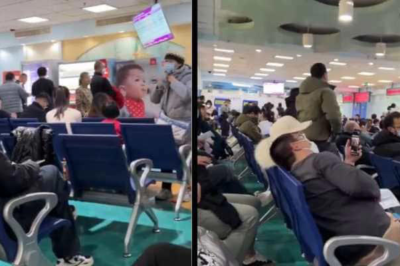
Amid global alarm over the Human Metapneumovirus (HMPV) outbreak in China, both Indian and Chinese authorities have issued reassurances, urging citizens to avoid panic. The rising number of respiratory infections, particularly in China’s hospitals, has drawn comparisons to the early days of the COVID-19 pandemic, evoking concerns among experts and the public alike.
Key Points of Concern
1. What is HMPV?
- Human Metapneumovirus (HMPV) is a respiratory virus first identified in 2001.
- Symptoms:
- Common: Cough, fever, nasal congestion, shortness of breath (flu-like).
- Severe: Bronchitis or pneumonia, especially in:
- Young children.
- Elderly individuals.
- Immunocompromised persons.
- Recovery: Most recover within a week, but vulnerable groups can experience complications.
2. Current Situation in China
- Reports indicate an increase in hospitalizations for respiratory illnesses, with preventive measures such as mask-wearing reminiscent of COVID-19 precautions.
- China’s Response:
- Chinese authorities downplayed fears, attributing the rise to seasonal patterns of winter respiratory infections.
- Foreign Ministry spokesperson Mao Ning emphasized China’s preparedness and reassured both residents and tourists.
3. India’s Reassurance
- Following close monitoring of HMPV developments, Dr. Atul Goel, senior official at India’s Directorate General of Health Services (DGHS), stated:
- No significant outbreaks or unusual rise in respiratory infections in India.
- Cases reported are akin to a common cold, not a major public health threat.
- India remains vigilant but emphasizes that panic is unwarranted.
WHO and Global Monitoring
- While the World Health Organization (WHO) has yet to issue a formal advisory on HMPV, it is closely tracking the situation.
- Neighboring regions like Hong Kong reported isolated cases without widespread transmission.
- No emergency declarations have been made, indicating the situation remains under control globally.
Curious Corner
Can health authorities worldwide establish a robust framework to swiftly contain new respiratory viruses without triggering public anxiety, as experienced during COVID-19?
Conclusion: Remain Alert, Not Alarmed
As winter peaks, it is natural for respiratory infections like HMPV to rise. However, authorities in China and India are taking measured steps to ensure public safety. While vigilance remains essential, panic is unnecessary. Public health remains in a stable state, and preventive measures like hygiene and vaccination programs continue to safeguard against severe outbreaks.








































Leave a Reply